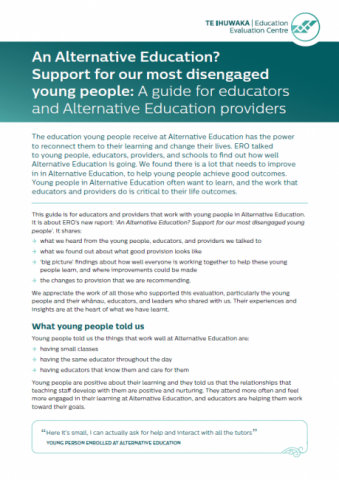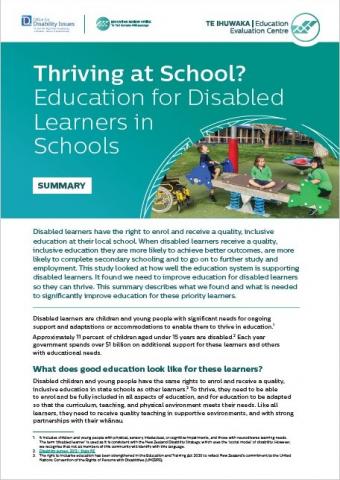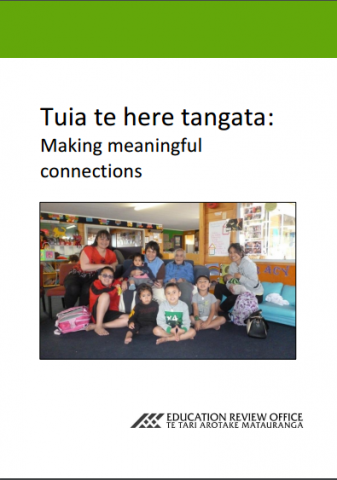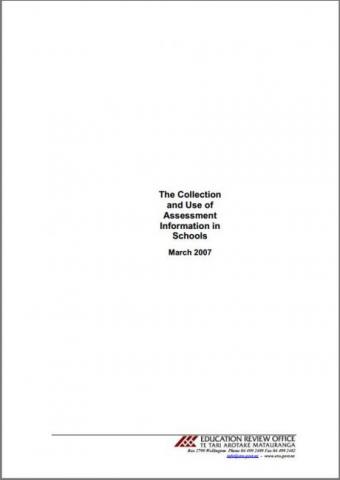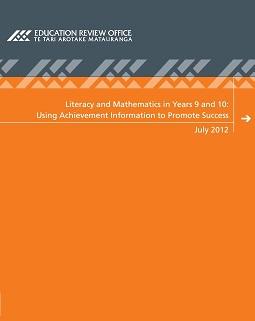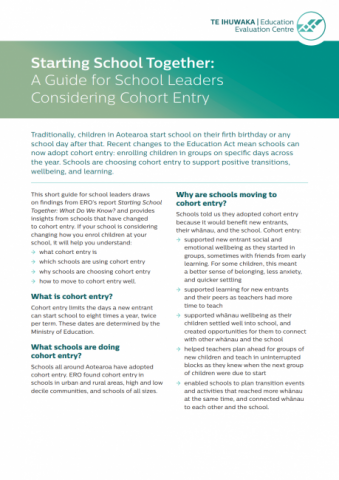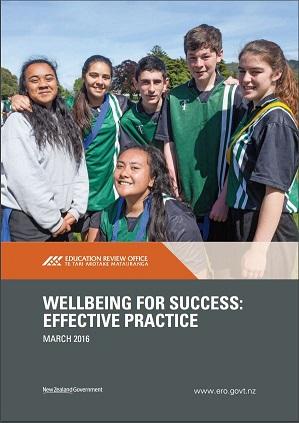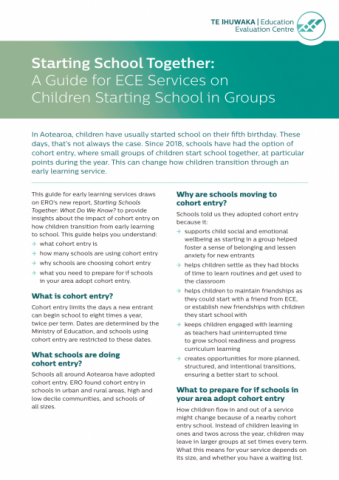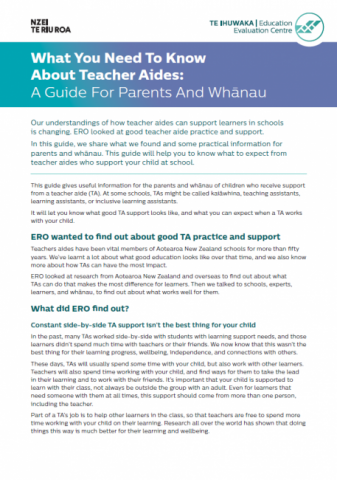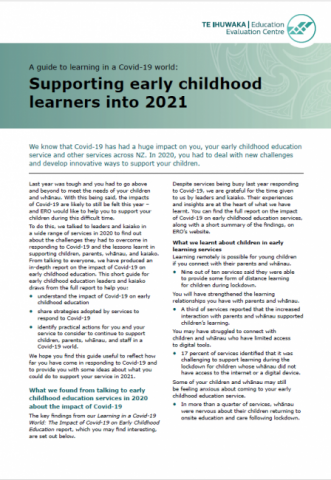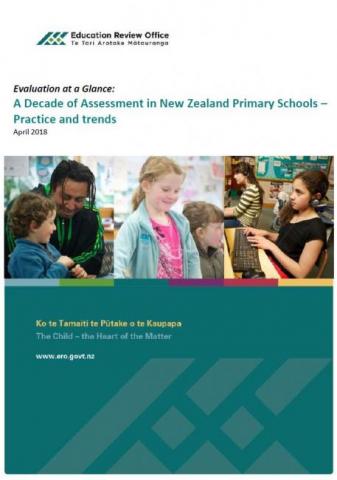An Alternative Education? A guide for educators and Alternative Education providers
Published: 27 Jun 2023
This guide is for educators and providers that work with young people in Alternative Education. It shares what we heard from the young people, educators, and providers we talked to in Alternative Education, what we found out about what good provision looks like, and the changes to provision that we are recommending.
- Audience:
- Academics
- Education
- Parents
- Schools
- Content type:
- Research
- Topics:
- Te Ihuwaka | Education Evaluation Centre
